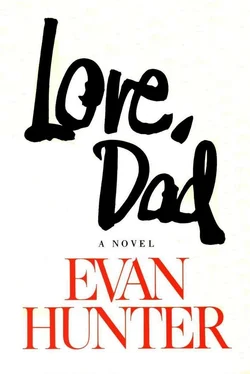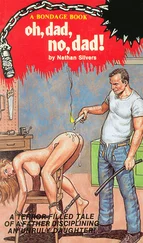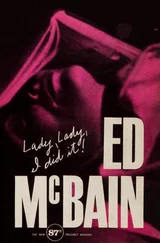“Yes,” he said. “Very happy.”
He did not mention that two people had been missing from his party. Two people missing from his life. His daughter Lissie. And his...
Joanna.
July 25, 1970
Dear Lissie:
Your three letters and the birthday collage you made arrived here today, were in fact waiting in the mailbox when Mom and I got up at noon after the party she gave for me last night. Thank God you’re all right, and thank you for your thoughtfulness. The collage is really beautiful, Liss. I’ve hung it in the barn, over my desk, and I’ll think of you whenever I look at it. I can’t begin to tell you how relieved we are. Before that batch of mail arrived, I had already called Andrews Travel and booked air passage for myself to Athens, fully intending to come there to Samos personally, certain that the goddamn Greeks had thrown you in prison or something. You’d mentioned in one of your earlier letters that the police thought you’d come illegally from Turkey, and I was beginning to think the worst. Thank God you’re all right, Lissie, and are still on Samos. Does this mean you’ve changed your mind about moving on to India? I hope so.
Do you know what I wished for last night, Lissie, when I blew out the candles on my cake? I know I’m not supposed to tell anyone, for fear it won’t come true. But let it be our secret, okay? I wished I would wake up one morning soon, and go down to the kitchen, and find you sitting there at the table shoveling cornflakes into your mouth. I would say, “Good morning, Lissie,” and you would look up and say, “Hi, Dad,” and go back to your cornflakes. And everything would be the same as it was again. I miss you, Lissie. Please come home soon.
Love,
Dad
August 3, 1970
Dear Mom and Dad,
We arrived here in Istanbul early Saturday morning and we have been roaming it since, enjoying every moment, though alas we will be leaving tomorrow morning. Dad, I’ve thought of nothing but you since the minute we arrived here. What a city for taking pictures! Everywhere you look, there is something new and different to see! I’m not only talking about the tourist attractions like the Blue Mosque or the Hagia Sofia, but the streets themselves, and the people in them, so alive and vital, and so unlike anything in America. It’s the only city in the world, you know, that actually straddles two continents, Europe and Asia, and the influence of both (continents) is felt everywhere you go. They are building a bridge across the Bosphorus right this minute, which means people will be able to walk across from Europe to Asia! Isn’t that something?
We’ll be leaving here tomorrow morning when we set out across Turkey toward Iran. I can’t begin to tell you how exciting all of this is, and how much I’m looking forward to the next leg of what so far has been the most rewarding time of my life. To be experiencing and learning, to be seeing all these different cultures so different from our own in America is more thrilling than I can possibly express. Please know that I love you both dearly, and will have much to tell you when I get home.
I can’t give you any address for you to answer because we will be on the road for the next several weeks, but I will write to you from time to time to let you know how I’m doing.
All my love,
Lissie
August 3, 1970
Dear Lissie:
We have not heard from you since receiving those three letters and your birthday collage. Are you still in Greece? Is there some problem? I feel as if I’m trapped in some kind of nightmarish time-warp. In effect, Lissie, your past has become our present. We never know what’s happening or what you plan to do next until we receive a letter relating events that have already gone by. Please write more often, won’t you? Because just now, the distance between us has made a meaningless jumble of past and present.
Love,
Dad
This is Asia.
It begins, really and truly begins, not ten miles outside the city. They have taken the ferry from the Galata Bridge to Uskudar, and have hitched a ride in the back of a pickup truck piled high with ears of corn and driven by a Turkish farmer who does not speak a word of English. He drops them off at Izmit, before making a right turn onto a secondary road leading to Eskisehir, waving at them from the cab of the truck as it disappears in a cloud of dust. They walk almost half the distance from Izmit to Adapazari, at least twenty kilometers by their map. As dusk stains the western sky and a setting sun tinges the waters of the Black Sea to the north, they sit on their duffel bags by the side of the road, wearily waving their thumbs at passing automobiles and trucks. The huge trailer truck that finally stops is painted green, the legend LABERRIGUE & CIE, MARSEILLES painted in white on its side. The driver leans over toward the open window on his right. “Où allez-vous?” he asks.
“Nous allons à Delhi,” Lissie answers in hesitant French.
“Eh bien, montez-vous et soyez à l’aise. Je peux vous conduire jusqu’à Teheran.”
The driver’s name is Jean-François Bertaut, and he is transporting a load of heavy farm machinery from Marseilles to Teheran. He tells them this, after realizing how sparse Lissie’s French is (three years of it at the Henderson School, another semester of it at Brenner), in a heavily accented English that could provoke laughter were he not their benefactor on an alien road that is already succumbing to the long shadows of night.
In the roadside gloom beyond the window, Lissie sees a baggy-pantsed woman drawing water from a well, sees an ox-cart loaded with earthen jugs and driven by a man wearing a fur hat and a long mustache, sees terraced cornfields, and sunflowers growing in wild profusion and then — she thinks surely it is a mirage — a camel caravan! The laden beasts plod along in the dusk, men in turbans and flowing robes walking beside them, the dust rising to cause a further diffusion of the rapidly waning light. “Look, Paul!” she says, and he turns from where he is sitting beside her as the truck rumbles past the caravan, a dozen camels in all, she guesses. “Yeah,” he says, “wow,” and she thinks, I’m in Asia.
The driver wants to know what is happening in the United States, particularly among the young people. He is himself in his fifties, Lissie guesses, a rotund little man wearing a peaked woolen cap, a gray jacket over a green V-necked sweater, and a tan shirt. His eyes are a pale, faded blue, his nose bulbous and interlaced with thin red veins, the mark of a heavy drinker. He has a thick, blondish mustache. When he takes off his cap to mop a red handkerchief over the top of his head, Lissie is surprised to discover that he is almost entirely bald.
His frame of reference as it pertains to the young people of France is what he calls the “minirevolution” that occurred in Paris during the spring of 1968, when students took over the Sorbonne, openly smoking marijuana in the courtyard and demanding constitutional reform, chanting “De Gaulle, adieu! De Gaulle, adieu!” and precipitating a pitched battle with the French riot police in the Latin Quarter. Jean-François was there at the time, visiting his sister; he saw the armored trucks and water cannons, he personally observed the police firing tear-gas grenades at the students and workers, who in retaliation hurled Molotov cocktails and cobblestones they had torn up from the streets. He can understand the attitude of the workers — eight million of them went on strike, demanding higher wages and shorter hours — but why the students? What was their complaint? Paul and Lissie (he pronounces her name in the French manner — “Leez”) are both young people, perhaps they can explain to him what is troubling today’s youth, including his own son who is somewhere in Holland right this moment, “Peut-être qu’il fume l’herbe ou pire, eh, as I have coming to expect.”
Читать дальше












